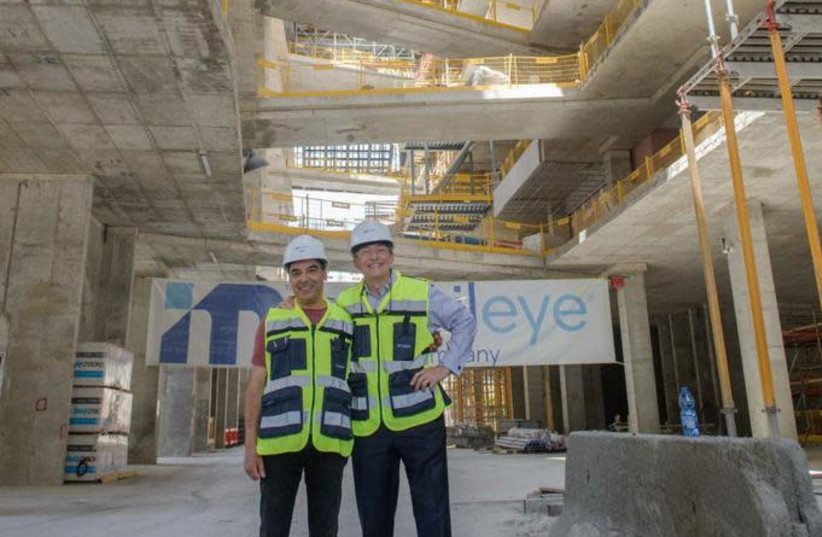Barkat: I want to double Israel’s GDP within 15 years

Barkat’s lofty goals may be difficult to achieve in light of the proposed legal reform, which may harm Israel’s reputation among foreign investors.
At the Diplomatic Forum on Israel’s Import Reform which took place in Tel Aviv on Monday morning, Economy and Industry Minister Nir Barkat shared his vision for the future of Israel’s economy.
“Based on the success of the GDP growth year after year in the past, my vision is to double the GDP of Israel in 15 years,” said the former Jerusalem mayor. “That means that we have to be on average 5% growth of our GDP year after year. That is a huge undertaking for Israel and based on our competitive advantage and our will to work around the world and to create friends, this is something that is within reach, and it’s something that our government is taking on.”
The tech sector
Another important factor in ensuring the growth necessary to hit Barkat’s lofty goal is the growth of the country’s tech sector, which represents a significant chunk of Israel’s economy.
“That means that the tech sector’s export has to grow more than 10% year after year. Today we have about 350,000 tech employees in Israel, that's 9% of the labor force; in 20 to 25 years, we have to reach 2 million, which will be 25% of the labor force. That's a huge undertaking for us to fulfill that vision,” Barkat said.
Something that may impede this growth, however, is the new government’s planned reform of the judiciary system, which would severely limit the authority of Israel’s High Court. Critics have pointed out that the reform’s plan to remove the High Court’s ability to check the power of the Knesset would result in harsh negative effects on Israel’s business sector, particularly the country’s credit rating and reputation among foreign investors.
“With the changes [to the legal system] that are being suggested, the government is trying to aim high, at the Supreme Court. But undoubtedly, it will affect lower courts as well, and that could have a devastating effect on the willingness of VCs to invest,” explained Professor Moshe Zviran, Tel Aviv University’s Chief Entrepreneurship and Innovation Officer.
As well, increasing the number of workers within the tech sector may serve as a challenge if the new government pushes the anti-LGBTQ and racist agendas held by several senior government members.
“We have a huge shortage of engineers in Israel today, and the more that we can attract women to take leadership roles, the more we can bring Israeli Arabs into the into the high tech workforce, the more we can bring ultra-orthodox Jews into the workforce will only make Israeli tech much, much stronger,” said managing partner and founder of Amiti VC, Ben Rabinowitz. “It doesn't matter what your values are, we need more talent, and we need a more welcoming place that will draw more talent.”
Jerusalem Post Store
`; document.getElementById("linkPremium").innerHTML = cont; var divWithLink = document.getElementById("premium-link"); if (divWithLink !== null && divWithLink !== 'undefined') { divWithLink.style.border = "solid 1px #cb0f3e"; divWithLink.style.textAlign = "center"; divWithLink.style.marginBottom = "15px"; divWithLink.style.marginTop = "15px"; divWithLink.style.width = "100%"; divWithLink.style.backgroundColor = "#122952"; divWithLink.style.color = "#ffffff"; divWithLink.style.lineHeight = "1.5"; } } (function (v, i) { });

